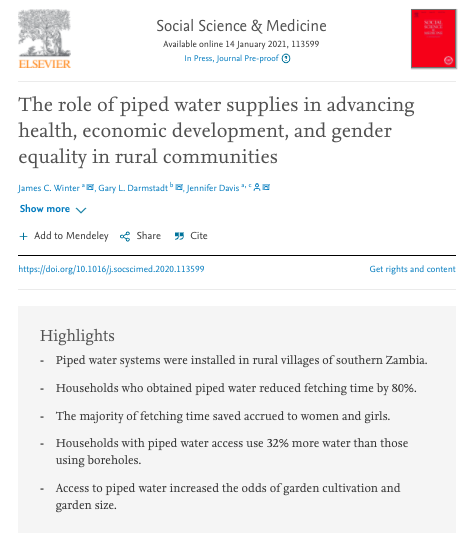The role of piped water supplies in advancing health, economic development, and gender equality in rural communities

ABSTRACT
In rural areas of sub-Saharan Africa, one in eight households obtain drinking water from a piped system; the rest fetch water from improved and unimproved sources located at some distance from their homes. This task falls primarily to women and girls, and accentuating time poverty and risks to safety and health. In this paper, we present a conceptual model that elaborates the mechanisms linking access to piped water with food security and long-term economic impacts. These hypotheses were tested in a quasi-experimental study of four villages in rural Zambia by using a combination of household surveys, Global Positioning System transponders, and water meters to measure time spent fetching water, water consumption, and how water was being utilized for domestic and productive activities. Households receiving the piped water intervention spent a median of 3.8 hours per week less fetching water, savings that accrued primarily to women and girls. Household water consumption increased 32%, which was used for both domestic and productive uses. Increases in the frequency of gardening and the size of garden plots in treatment households were observed. Households receiving piped water reported being happier, healthier, and having more time to participate in work inside or outside the home. We find that piped water supplies can promote the economic development and well-being of rural households, with particular benefits to women and girls, conditional upon pricing and management models that ensure sustainable service.